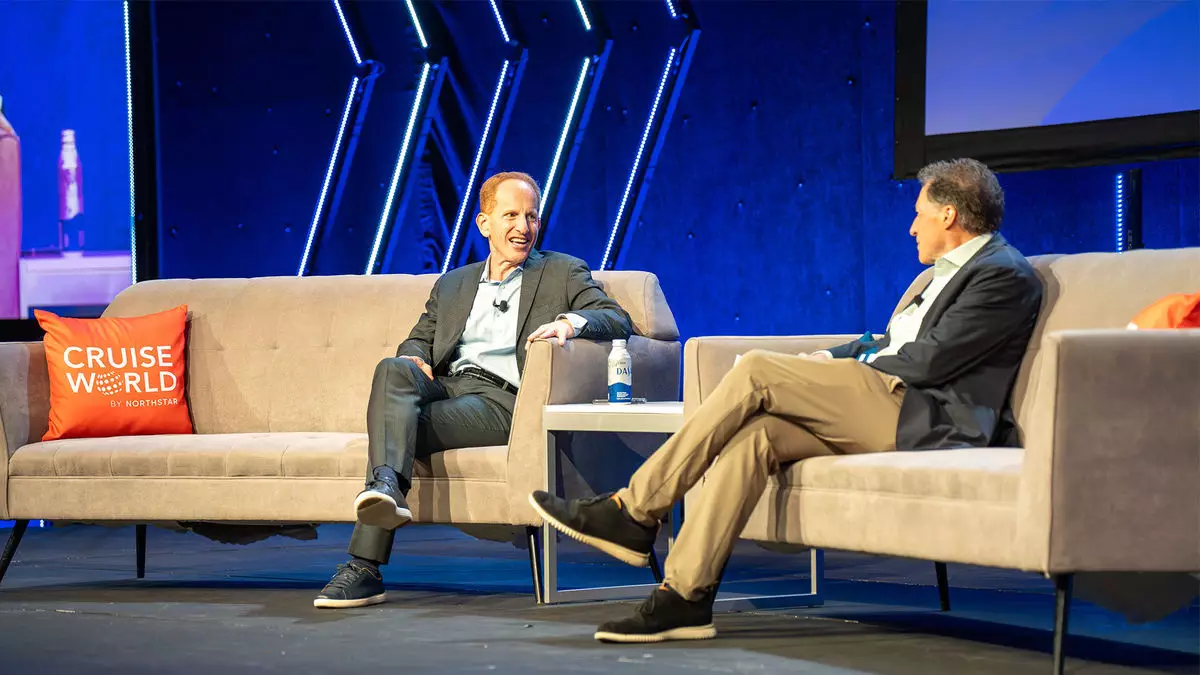The cruise industry faces a remarkable transformation as the demand for sustainability intensifies. With over 60 new ships anticipated to launch in the coming years, there is an urgent need for these floating giants to shift towards environmentally friendly practices. The pressure stems not just from consumer preferences but also from environmental authorities in Europe who are insisting on advancements in emissions reduction. As this industry evolves, cruise lines must navigate the delicate balance between operational demands and environmental responsibilities.
For a long time, liquefied natural gas (LNG) has been hailed as a more environmentally friendly alternative to traditional marine fuels like marine gas oil. While it has lower carbon emissions, recent criticisms suggest that LNG’s reliance on methane might render it less favorable due to methane’s significantly higher global warming potential. Norwegian Cruise Line Holdings (NCLH), led by CEO Harry Sommer, has made a bold decision by opting not to use LNG for its latest ships, Norwegian Prima and Norwegian Viva. Instead, Sommer argues that, upon examination, LNG’s benefits in carbon reduction do not outweigh the adverse environmental impacts of increased methane emissions.
Rather than adopting LNG, NCLH is exploring more innovative solutions. The company has begun testing biofuels on around 20% of its fleet, effectively positioning these fuels as a transitional option on the journey toward sustainable operations. Furthermore, NCLH is investing in the next generation of fuel sources, developing future ships to be “methanol-ready”. This strategy allows for dual fuel capabilities, where vessels can switch between diesel and green methanol, which may offer a more sustainable path forward. Such initiatives represent not only a commitment to reducing emissions but also an acknowledgment of the industry’s responsibility in addressing climate change.
Cruise Lines International Association (CLIA) has called for the entire industry to work toward net-zero carbon emissions by the year 2050. Achieving this ambitious goal hinges on the availability of affordable clean fuels at a scalable level. Jason Liberty, CEO of Royal Caribbean Group, emphasized the critical need for cleaner fuel alternatives as part of the industry’s roadmap toward sustainability. Despite significant investments in technology and innovation, Liberty points out that the real challenge lies in the accessibility of these clean fuel sources. Without timely advancements in fuel technology, the cruise industry may struggle to meet its sustainability goals.
As the cruise industry embarks on its journey toward a more sustainable future, the ability to adapt to multiple fuel sources becomes increasingly significant. Developers are strategically designing new ships to accommodate various fuels, enabling a smoother transition as cleaner alternatives become commercially viable. The coming years will undoubtedly challenge the cruise sector to innovate and respond proactively to environmental concerns. Embracing sustainable operations is no longer a luxury but a necessity for the long-term viability of cruising as a leisure option. With collaborative efforts in technological advancements and a commitment to cleaner fuels, the cruise industry can chart a course toward significant emissions reductions, ensuring that the beauty of the world’s oceans remains preserved for future generations.


Leave a Reply